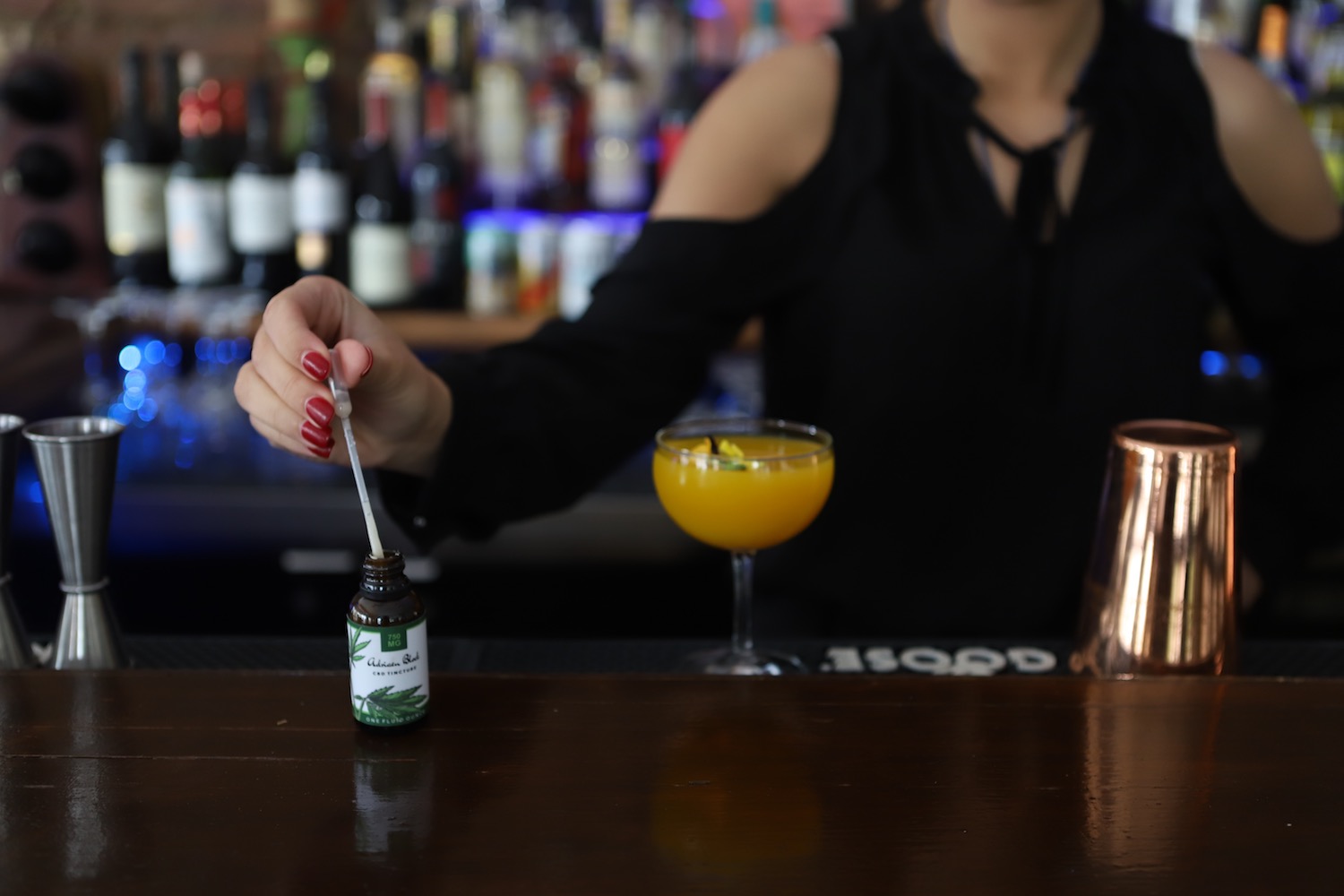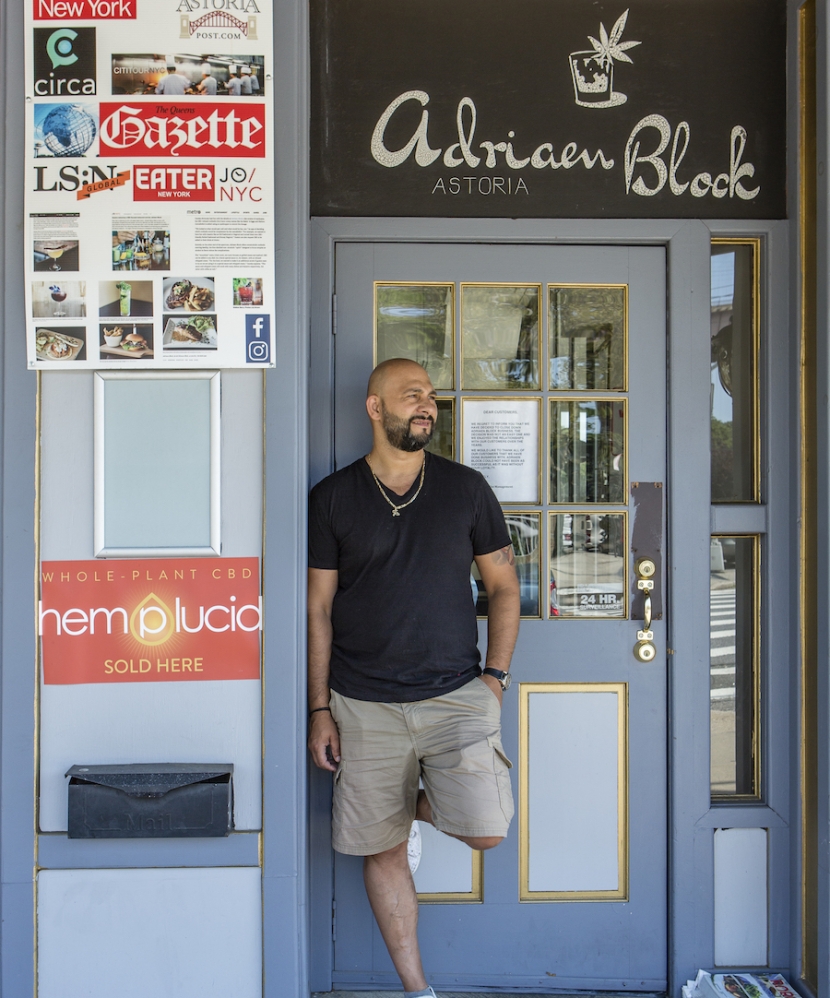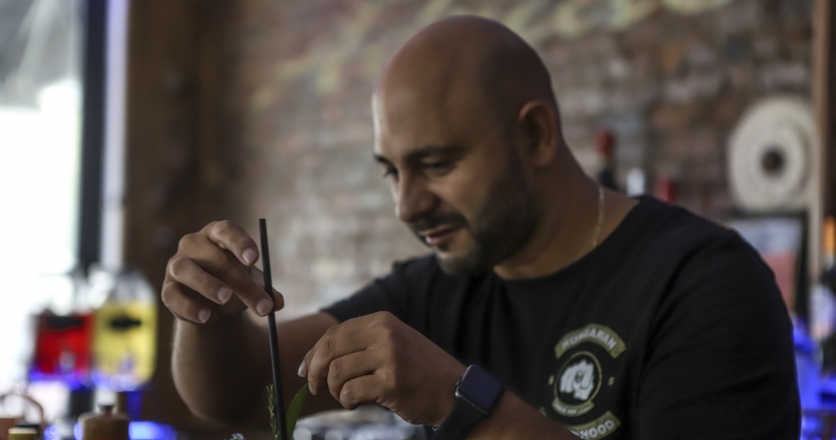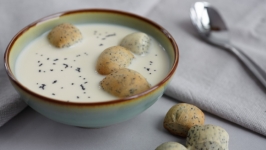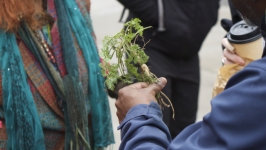Cracking Down on Calming Cocktails
The classic American brunch: a stack of pancakes feathered in fruit, alongside a dollop of whipped cream infused with CBD—it gives an immediate sugar rush and then slowly makes you feel calm and relaxed. It’s an upgrade to contemporary cuisine: CBD-infused everything. That was the vision of Zsolt “George” Csonka, the owner of Adriaen Block—New York City’s very first CBD cocktail bar, recently shuttered in Astoria.
You may have heard about CBD or seen it advertised as a coffee additive at cafés across Brooklyn and Manhattan. CBD (cannabidiol) is a non-psychoactive compound found in marijuana that has less than .3% THC—meaning it won’t get you high. It’s received widespread praise over the last year by consumers who claim that it relieves anxiety, stress and even soothes muscular aches. The craze has influenced a rise in various CBD products: tinctures, candies, beauty care items, body lotions and now food and cocktails.
When I first visited Adriaen Block last fall, in what Csonka called the bar’s “honeymoon season,” he spoke optimistically about a shift in the boozy brunch and nightlife culture. New York City, infamous for both scenes, was on track to become a hub for people who drink to acquire a calming sensation in lieu of a buzz.
“People are catching on and actually adapting CBD to their lifestyle. It’s not just going to be a trend, it’s going to become a lifestyle,” Csonka said at the time.
While Adriaen Block was just in its infancy, the Food and Drug Administration (FDA) negated CBD’s therapeutic claims and still considered it a drug. Similarly, it was disapproved of by scientists who argued that more studies need to be conducted to prove the health benefits touted by CBD retailers. Meanwhile, at the bar, customers would ask “What’s CBD?” and “Is it legal?”
In December 2018, the FDA declared that adding CBD to any food or drink would not be allowed at restaurants or through food/beverage services. New York City’s Department of Health also prohibited it as a food additive. Since then, health inspectors have started cracking down on restaurants and cafés—seizing thousands of dollars worth of CBD products. They sent a letter to all local CBD businesses in New York City to comply with the regulation by June and to stop selling products entirely by October.
“It literally killed my business,” Csonka told me in May, just a week after Astoria’s Adriaen Block officially closed its doors. “I tried to believe that everything was going to be OK, but the damage was already done.”
Adriaen Block was all about Csonka’s concept: a CBD bar and eatery. Taking away CBD from that equation just didn’t feel right to him, so he opted to shut the restaurant down. Loyal regulars celebrated one last time at the Block’s farewell party on Cinco de Mayo.
But Csonka, a CBD user himself, still believes in all of its positive effects and has hope that CBD legislation will become more clear in the near future, in which case he’d consider resuming his restaurant.
According to a nationwide survey, over 80% of American CBD consumers believe CBD has helped them with various symptoms. “Everybody knows about CBD now,” Csonka said. Still, CBD is not for everyone. It can taste rusty, as if freshly scooped from the earth’s soil.
Csonka loves the taste, but knows its flavor is not what sells the product.
When creating the recipes for the cocktails he served at Adriaen Block, he didn’t just use oil, but experimented with a combination of CBD derivatives, all sourced from a certified organic hemp farm in Brush, Colorado. Mixing the CBD with fruity shrubs, like blackberry and parsnip, and bitter twists of orange—the CBD taste would begin to melt away, along with your pre-existing stress.
On an average weekend night, nearly 100 customers filled the space. That might be because the bar employed a weekend DJ, or that people are just thirsty for CBD cocktails, or a combination of the two. In addition to whipped cream and cocktails, the Block also served five sauces infused with CBD, offered as condiments for steaks and the house hamburger. It was a vision of the future: a burger that makes you calm.
Csonka was already planning his next venture on Manhattan’s Upper East Side—a burger and cheesesteak spot that would feature at least 15 different CBD-infused sauces. He was planning to open by the end of 2019, but his plans for that have also paused, until rules and regulations for CBD change.
Amid the neighborhood’s famous hookah bars, beer gardens, Greek restaurants and hipster bars—the Block offered something comforting and different.
“For the city to stop the small businesses like mine, I don’t think that was fair,” Csonka said. Despite all the commotion and deciding to close, Csonka has not been deterred, and says that he is proud of what Adriaen Block was able to accomplish. People learned about CBD, changed their nightlife regimens and found community at the restaurant. If anything, it only bolstered the CBD movement’s popularity. Csonka says he will continue to work as a mixologist for clients who want CBD cocktails at their events.
According to the Specialty Foods Association, even if the health claims about CBD are still uncertain, the CBD-infused food trend will only continue to grow, despite confusion surrounding its legality. And if anyone can claim responsibility for bolstering this novelty movement, it’s Csonka.


